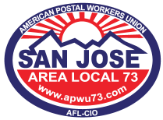RI-399 Jurisdictional Disputes
Disputes over work assignments — and which craft should be assigned responsibility for performing specific duties — are known as “jurisdictional disputes.” Disagreements over whether duties in mail processing operations should be assigned to Clerk Craft employees or to Mail Handlers are often referred to as “RI 399” disputes, named for Regional Instruction #399, Mail Processing Work Assignment Guidelines. [PDF]
RI 399, which was issued in February 1979 by the Postal Service and modified several times since, assigns a primary craft (Clerk or Mail Handler) to perform various mail-processing functions. It also contains instructions for determining which craft should be assigned new mail processing work. RI 399 applies only in facilities where mail processing occurs.
APWU locals that believe work in their facilities has been improperly and permanently assigned to Mail Handler Craft employees should consult with their Regional Dispute Resolution Committee Representative [PDF] prior to filing disputes in their facility. Local officers who are unable to reach their Regional Representative may contact Lynn Pallas-Barber, APWU National Dispute Resolution Committee Representative.
Dispute Resolution Procedures
A Memorandum of Understanding effective April 16, 1992, between the USPS, American Postal Workers Union, and National Postal Mail Handlers Union (NPMHU), Dispute Resolution Procedures [PDF], outlines the general principles and procedures for resolving these disputes by establishing Local, Regional and National committees to identify, pursue, and arbitrate disagreements over work assignments.
On June 26, 2018 in a tripartite Memorandum of Understanding [PDF], the APWU improved the R1-399 dispute resolution procedures, resolved the docket of disputes, and required accurate and updated inventories to protect existing and future Clerk work. Click here [PDF] for a brief summary of the changes.
RI 399 Forms
- Appeal to RI-399 Regional Arbitration FORM (72.96 KB)
- Appeal to RI-399 Regional Dispute Resolution Committee FORM (101.14 KB)
- Appeal to Local Dispute Resolution Committee FORM (99.2 KB)
- Local Dispute Resolution Committee Disposition FORM (155.79 KB)
- Regional Dispute Resolution Committee Disposition FORM
- RI399 Joint Installation Inventory Sheet
Questions and Answers on Dispute Resolution Procedures
Representatives of the Postal Service, the APWU, and the NPMHU agreed on Oct. 21, 1992, to responses to common questions [PDF] regarding RI 399.
Jurisdictional Decisions
The USPS awarded jurisdiction on the following positions to the APWU:
- Automated Delivery Unit Sorter (ADUS) [PDF] – May 10, 2019
- Universal Sorting System (USS) [PDF] – July 12, 2019
- Enhanced Package Processing Sorter (EPPS) – July 12, 2019
- Small Parcel Sorting System (SPSS) [PDF] – Aug. 7, 2015
- Advanced Facer Canceller System 200 (AFCS 200) [PDF] – Sept. 28, 2012
- Automated Parcel Bundle Sorter (APBS) [PDF] – July 29, 2011
Local Inventory Instructions
Facilities with both Clerk Craft employees and Mail Handlers are required to maintain a current “inventory” of work assignments in all operations. Representatives of the USPS, APWU and NPMHU developed instructions on March 23, 1994, outlining how to establish and maintain a Local Inventory of Operations [PDF] and craft assignments in mail processing facilities.
Issues Pending National Arbitration
Numerous issues are pending before the National Dispute Resolution Committee. The issues listed below, including disputes filed by the APWU and the NPMHU, are pending arbitration.
Advanced Facer Canceller System (AFCS) (Case #Q94C-4Q-J 97028616, Appealed Nov. 27, 1996.) Whether the addition of the Input Subsystem to the Advanced Facer Canceller is an operational change that requires the work to be assigned to the Clerk Craft.
Headquarters-Level Tripartite Agreements
A series of three-party agreements between the USPS, APWU and NPMHU address Dispute Resolution Procedures, jurisdictional settlements in mail processing operations, and the arbitration process for these disputes:
a. Remedy: A settlement signed in December 1992 [PDF] by the USPS, APWU and NPMHU stipulated that purely remedial issues should be resolved through Article 15, Grievance Procedure, of the Collective Bargaining Agreement, rather than the Dispute Resolution Procedures.
b. Primary Purpose in Operations 110-129 and 180-189; Dock Connection Transfers; and Non-Jurisdictional Cases. An August 2000 agreement between the USPS, APWU and NPMHU [PDF] settled interpretive issues involved in those operations/work areas. Guidance also was provided regarding what constitutes a jurisdictional dispute to be settled through the Dispute Resolution Procedures as opposed to an Article 7.2 cross-craft violation.
c. Application of National Jurisdictional Arbitration Awards. An August 2000 agreement between the USPS, APWU and NPMHU [PDF] established the procedures to follow after a national-level arbitrator issues a decision on a jurisdictional matter.
d. Implementation of Arbitration Award H7C-NA-C 32. An agreement signed in August 2000 by the USPS, APWU and NPMHU [PDF] established procedures to implement a national-level award on spreading mail.
f. Memorandum of Understanding. A June 2007 agreement between the USPS, APWU and NPMHU [PDF] settled disputes regarding OCR Mail Preparation and MODS Scales. The Memorandum of Understanding also contains procedures regarding the order and presentation of national-level RI 399 disputes.
USPS/NPMHU Letter of Intent, June 19, 1987
A June 19, 1987, agreement between the USPS and NPMHU [PDF] was intended to clarify the difference between “distribution,” which is a Clerk function, and “separation,” which is a Mail Handler function, in belt operations 110-129 and 180-189.
USPS/APWU Memorandum of Understanding, July 19, 1987
A July 19, 1987, agreement between the USPS and APWU [PDF] further clarified the difference between “distribution” and “separation,” by defining “distribution” in belt operations 110-129 and 180-189.
Resources
